You might have heard that “hydration” and “moisture” mean different things in skincare. Today I’m going to make an argument about why this distinction is stupid and we should stop using it.
I have lots of strong feelings about terminology. Ideally, I like terminology that’s both intuitive and accurate.
Sometimes it doesn’t quite work that way and you need to compromise – for example, organic vs inorganic sunscreens aren’t really intuitive for non-scientists, but they’re accurate. Chemical and physical are reasonably intuitive but not very accurate. I use both so more people will find the right information and understand what I’m talking about.
But the commonly used distinction between “hydration” and “moisture” in skincare isn’t intuitive OR accurate, so today I’m going to have a big whine about it.
Hydration vs Moisture: What They Say
Here’s what some sites say is the difference between hydration and moisture:
- Hydration refers to the water content of your skin
- Moisture refers to the oil content of your skin
Simple enough, right?
Problem 1: Intuitiveness
Let’s start by looking at how intuitive this is. Sure, people think about water when talking about hydration:
But what about moisture? Some of the sites that make a distinction between “moisture” and “hydration” claim that “oil comes to mind when we think of moisture”.
Really? Here’s what relatedwords.org says:
It’s more watery than hydration!
Here’s what turns up when you do a Google Image Search for moisture:
Watery AF.
Problem 2: Accuracy
OK, so maybe most people think of water when you say moisture. But maybe they just need to learn a bit more about skin, then they’ll change their minds?
It turns out that the people who know the most about skin – skin scientists – use moisture and hydration pretty much interchangeably… and both of them relate to water content.
Here’s a partial list of the dermatology papers I found when I looked up “skin moisture content” on Google Scholar and Pubmed:
Martinsen et al., Electrical methods for skin moisture assessment, Skin Pharmacol 1995, 8, 237–245. DOI: 10.1159/000211353
“Skin moisture assessment” relates to “stratum corneum hydration level” – in other words the scientists measured water in the skin
Yosipovitch et al., Skin surface pH, moisture, and pruritus in haemodialysis patients, Nephrol Dial Transplant 1993, 8, 1129–1132. DOI: 10.1093/ndt/8.10.1129
The scientists conducted “skin moisture measurements” by using a corneometer to measure skin capacitance, which depends on water in the skin
Pires et al., A population-based study of the stratum corneum moisture, Clin Cosmet Investig Dermatol 2016, 9, 79-87. DOI: 10.2147/CCID.S88485
This study measured moisture by using a corneometer to “determine the hydration level of the skin surface”
Alanen, Measurement of hydration in the stratum corneum with the MoistureMeter and comparison with the Corneometer, Skin Res Technol 2004, 10, 32-37.
A machine called a “MoistureMeter” was used “for measuring the hydration of stratum corneum”
Woo et al., Development of a method for the determination of human skin moisture using a portable near-infrared system, Anal Chem 2001, 73, 4964–4971. DOI: 10.1021/ac0102563
“human skin moisture”…”relative water content values of stratum corneum”
Blichmann and Serup, Assessment of skin moisture. Measurement of electrical conductance, capacitance and transepidermal water loss, Acta Derm Venereol 1988, 68, 284-290.
“Experiments on skin moisture, i.e. the hydration state of the outer epidermis”
You get the idea.
But it isn’t just dermatology. In fact, in every area of science, both terms relate to water content. Soil moisture, food moisture, paper moisture – all of these relate to water, not oil.
The only place you’ll see a distinction between hydration and moisture is… in skin care and hair care.
Based on the fact it doesn’t make sense intuitively, or technically, I’m going to stick my neck out and propose that people stop trying to make hydration vs moisture happen. It’s unnecessary jargon. It might make you sound smarter saying it, but it’s confusing and doesn’t make sense.
What can we say instead?
Water vs oil is a really useful concept in skincare, and can really help you work out what to look for in your skincare products. But we don’t need to contort the meaning of normal words to get the point across. We can… just use normal words.
Dry skin needs OIL, dehydrated skin needs WATER
(“Dry” isn’t really the most intuitive term for lack of oil either, but it’s common terminology and widely accepted everywhere.)
It doesn’t sound as fancy, but it’s clear and correct. And if the choice is between fancy and correct, correct should win.
References
Martinsen et al., Electrical methods for skin moisture assessment, Skin Pharmacol 1995, 8, 237–245. DOI: 10.1159/000211353
Yosipovitch et al., Skin surface pH, moisture, and pruritus in haemodialysis patients, Nephrol Dial Transplant 1993, 8, 1129–1132. DOI: 10.1093/ndt/8.10.1129
Pires et al., A population-based study of the stratum corneum moisture, Clin Cosmet Investig Dermatol 2016, 9, 79-87. DOI: 10.2147/CCID.S88485
Alanen, Measurement of hydration in the stratum corneum with the MoistureMeter and comparison with the Corneometer, Skin Res Technol 2004, 10, 32-37. DOI: 10.1111/j.1600-0846.2004.00050.x
Woo et al., Development of a method for the determination of human skin moisture using a portable near-infrared system, Anal Chem 2001, 73, 4964–4971. DOI: 10.1021/ac0102563
Blichmann and Serup, Assessment of skin moisture. Measurement of electrical conductance, capacitance and transepidermal water loss, Acta Derm Venereol 1988, 68, 284-290.
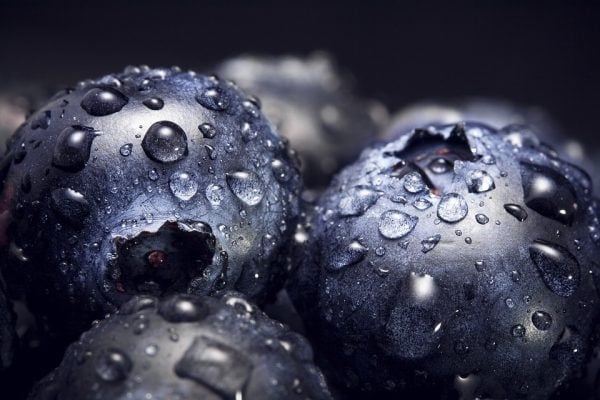
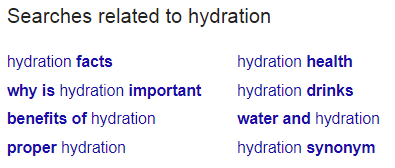
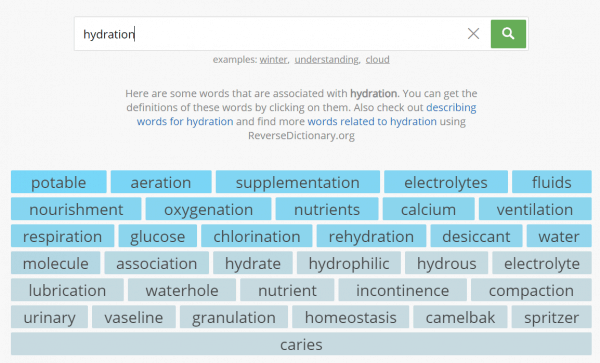
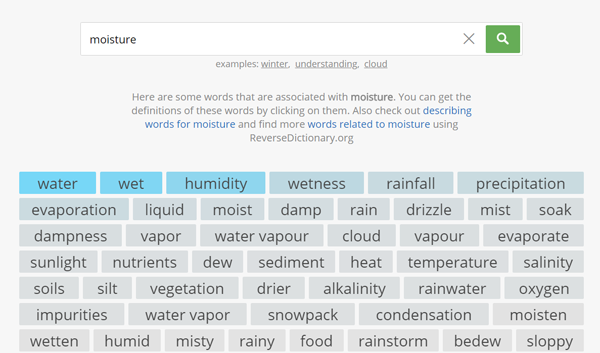
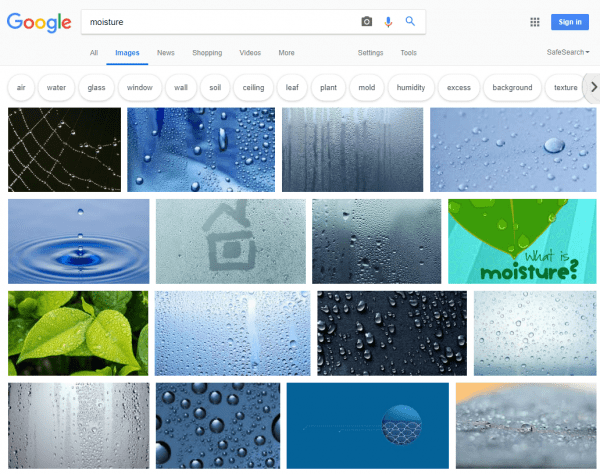




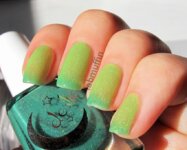
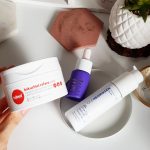
*swoons*
Not only do I totally agree with you, but I love your approach to skin care/beauty 🙂
I’m not sure I buy “needing oil” = “dry”; after all, when my mouth is dry, I drink water, not olive oil. And when I dry myself after a shower, I’m wiping water off.
And obviously, when i’m “Patched,” that’s when I SERIOUSLY need some water.
I’m not coming up with a good term for “oil-deprived,” unless we use “oil-deprived.” If “hydration” refers to water, then why don’t we refer to “lipodration” or similar?
*parched, not “patched.”
I’m more willing to use “dry” because:
a. It’s the word used in the literature, both for needing oil and needing water, and it’s been used that way since the 1950s, so by this point it’s evolved to have its own meaning
b. “Dry” is commonly used to mean lacking other liquids too e.g. “Dry July” = lacking alcohol, “watching paint dry” = solvent, usually not water, leaving paint, “let your nail polish dry” = ethyl acetate leaving nail polish,
dry wine or dry gin lacks sugar, which is not even a liquid 😛
This sounds like what the kids call: shaking the table.
But thank you for articulating what I’ve wanted to say for ages. May all our faces luxuriate in moisture/hydration, tonight and beyond.
I’ve always been very confused by this debate! I’m French, and in my langage, you don’t have two words to say the same thing, we only have one: “hydratation” (which could translate to both hydration and moisture). For skins who need oil, we usually talk about “nutrition”, which could translate as “nourishing” I guess.
So yeah, the difference between hydration and moisture has always been lost in translation for me ah ah ah 😉
I was about to comment the same thing !
But to me even “hydratation” in French is more about water than oil.
It is only when a person is not aware of the distinction between the need of oil or water (dry vs dehydrated basically), that he or she will use “hydratation” as a fill word.
However in the word dry, for example talking about meat or cake, it means the lack of fat. Also the words dry skin is immediately opposed to oily skin, so it isn’t a problem in my opinion.
I second that. Skincare lingo is much too confusing anyway at the moment, we don’t need to make it any more complicated.
Anne – Linda, Libra, Loca
To what extent is oil needed for the skin? I understand it depends on your skin type, but a clarification for us noobs would have been highly appreciated! 🙂
Unfortunately all I can say in a short comment is that it depends on skin type! I talk about it in my eBook The Lab Muffin Guide to Basic Skincare and that section is a whole chapter. Basically if your skin needs oil you need it, but if you skin is oily it can still help but it’s less necessary.
I’m Czech and we don’t have separate words for hydration and moisture either :p.
In English, from the sum of what I read about skincare so far I felt like “hydration” meant “increasing the water content in skin by adding water and humectants” and “moisture” meant “increasing the water content in skin by any means, including adding occlusives to seal the moisture in”. However, I noticed the two terms being used interchangeably and was not happy with the situation.
I like the simple dry/dehydrated water/oil language much better, it’s clear and accurate so why fuss with terms just to look smarter.
And to make it even more confusing, I did a search of “what is dry skin”. From a medical perspective, WebMD, Mayo clinic and Medicinenet defines dry by it’s symptoms such as irritated, itchy, rashy skin (i.e., what I commonly think of as “sensitive” skin) – and differentiates from normal skin by describing it as a lack of water. Medicinenet differentiated that lack of oil could contribute to dry skin but did not characterize dry skin as a lack of oil but rather a lack of water.
Interestingly. an article appearing in Refinery29 explained it based on an Interview(?) with an esthetician, who said dry skin was adlipic but then it basically came down to not producing enough oil to keep water from evaporating from skin. To me that still puts it in lack of water because oil is a protectant in this case.
I agree. As a beauty therapist, we are educated between dehydrated= lacking water and dry =lacking oil. However your skin would feel ‘dry’ regardless what it was lacking, I always thought the terminology was contradictory.
I am more inclined to say a lipid (meaning fats and oils) dry skin, or a dry, dehydrated skin, both in the ‘dry’ category.
Thanks for a great post